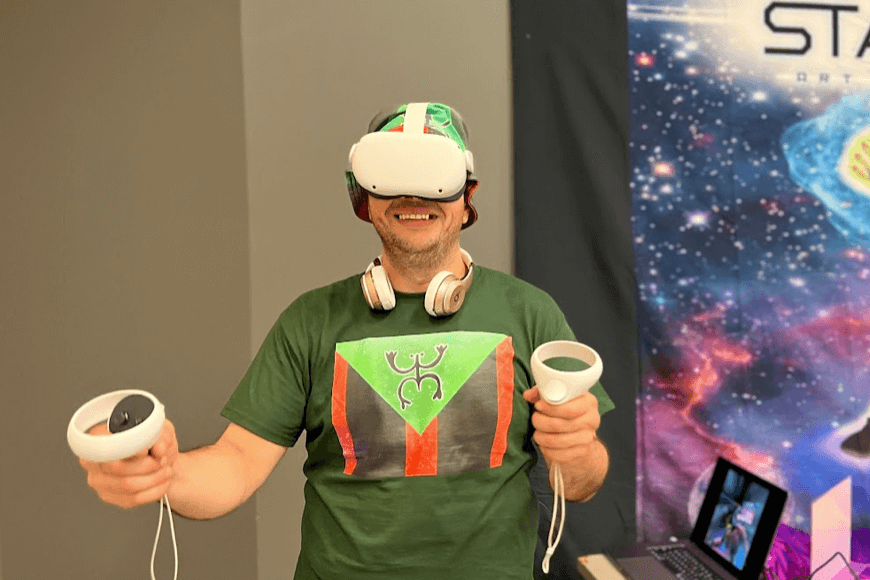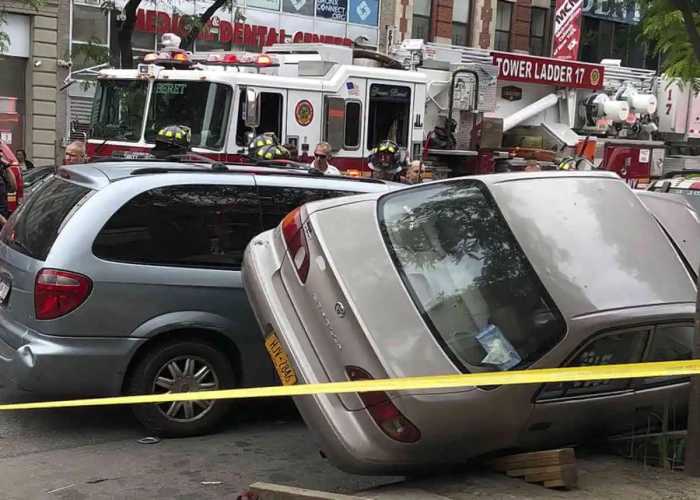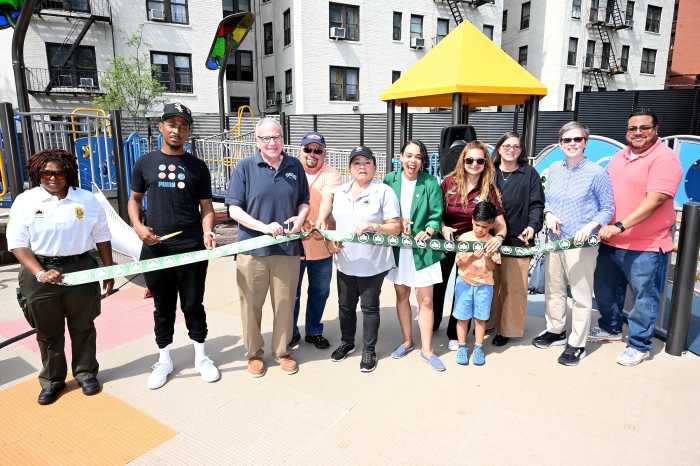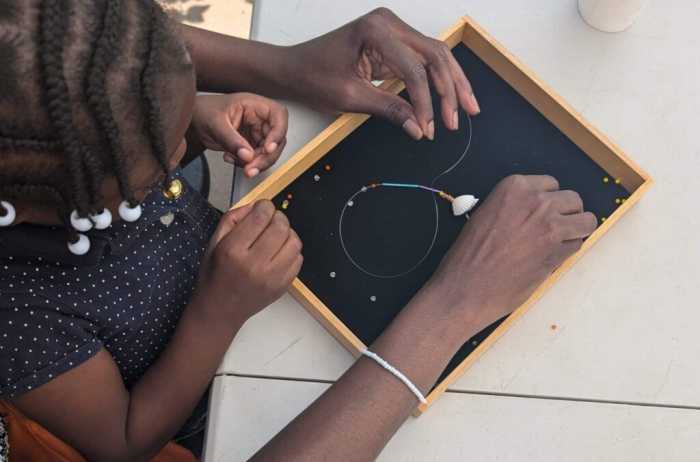A harshly-lit probation office on East 161st Street is the last place you’d expect to find a tray of hot churros, freshly-made watermelon juice and a middle schooler wearing virtual reality goggles.
Star Seed, a pop-up arts and technology workshop, has been offering eight-week virtual and augmented reality programs to New Yorkers for six years. The project is partially funded by NeON Arts, a collaboration between the city’s Department of Probation, and Carnegie Hall, in hopes of including formerly incarcerated students.
Virtual reality – often labeled as “the rich white kid of technology” – is a 3D, computer-generated environment that users can explore and even interact with. All it takes is a pair of goggles that can cost anywhere from a few hundred to a few thousand dollars.
“I would never teach something that people can’t afford,” said Will Roberts, one of Star Seed’s co-founders. Thanks to its grants, the group provides technology to every student for the duration of the program.
One of this year’s Star Seed participants, Richard Rodriguez, 40, presented his virtual world to a small audience on Wednesday night. “I can’t believe I’m surrounded by parole officers and none of them are mine,” he said, looking around the room.
The program started by enrolling only younger students at first, but expanded once parents started joining in. Now, Star Seed works with a cohort of students ages 10-55.
Rodriguez’s work draws on inspiration from his family, Puerto Rican heritage and early days as a graffiti artist in the South Bronx. Making art in the virtual world is less stressful, he says. “You don’t have to deal with cases or anyone chasing you. You can have a personal metamorphosis with this … it’s better than me picking up a spray can and going outside at two o’clock in the morning.”
While working as a Starbucks barista at Manhattan College for 15 years, Rodriguez drew on flattened boxes with a Sharpie in his downtime — just to practice. This week, with Roberts’ help, Rodriguez introduced an audience to his virtual universe through a small monitor.
His virtual world – which mirrors the inside of Rodriguez’s mind – is filled with bursts of color, Puerto Rican flags and graffiti art replicas.
One Batman-adorned corner of Rodriguez’s work honors the memory of his late brother, Orlando, who was found dead after a stint of homelessness in New York City at the start of the pandemic. “See?” Rodriguez said, pointing to rainbow letters spelling out “O-Love” on the screen. “I gave him a pulse again.”
“That could actually be the world that someone lives in,” said Roberts. “[Rodriguez] just built a piece of architecture.”
Rodriguez, who’d never put on VR goggles before this summer, worked through his frustrations with motivation to create a “second life,” as he calls it. As a recovering alcoholic, he craves a future that doesn’t involve going back to rehab for 32 days or being haunted by memories of his father’s violence.
Now, he’s monetizing his work through a virtual store – selling t-shirts, mugs and bucket hats.
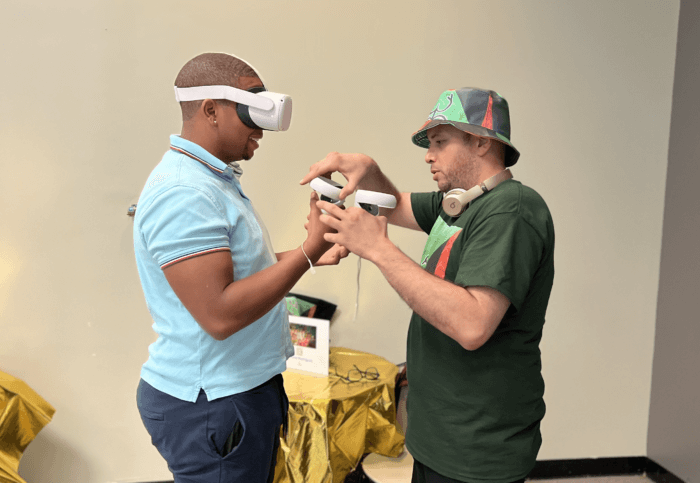
Like Rodriguez, Star Seed’s co-founders are just as inspired by their upbringing. “I grew up poor, like dirt poor,” Roberts said. “So I think, ‘How can I teach this to my 15-year-old self?’”
Growing up in Miami, a teenage Roberts slept in a three-bedroom house with more than 20 others. When his uncle pulled out a broken eMachine one afternoon, he bought the manual for a similar computer from a pawn shop and taught himself how to rebuild it. Technology has been at the forefront of his work ever since.
The former University of Oklahoma football player sees virtual reality as a road to financial independence. “I can’t play football till I’m 80 or 90 years old,” Roberts said. “But I can make art till I’m dead.”
The program’s other co-founder, Paul Deo — whose “Planet Harlem” mural was lauded by New York Magazine in 2018 – thanks his creative childhood painting gang jackets as young as 8. “My daycare was the Apollo Theater,” he said, recalling nights backstage with James Brown and The Jackson 5.
He remembers being embarrassed as a kid when his aunt, who suffered from schizophrenia, begged in the subway. “What can I do to make that kid proud?” he says now.
“You can actually take care of your family with some of these skills,” Deo added. “That beats out degrees, master’s, PhDs – all that crap.”
This summer, Star Seed’s students created virtual experiences based on the world around them. One student built a virtual walking path where flowers shout compliments at Black women who walk by. Another built a series of virtual workout classes inspired by Michael B. Jordan’s “Creed” to combat obesity in his neighborhood.
Filled with adrenaline after the presentation, Rodriguez shared his future plans to create VR experiences for kids. Rather than flipping through a giant storybook in Central Park, he says, they can explore unknown worlds. But it’s not just about bringing Bronxites to new places. Another student chimed in, “It also brings the rest of the world to The Bronx.”
Star Seed’s next session is scheduled for spring 2023, but Roberts says fundraising to cover technology costs is a challenge. Roberts and Deo put in their own money to top off the grants, and even buy everyone Popeye’s for lunch every week.
At the end of the night, Roberts and Deo gifted Rodriguez with VR goggles to take home. “That feeling of regressing and falling off the wagon?” Rodriguez said. “It ends with me.”
Reach Bahar Ostadan at baharostadan1@gmail.com. For more coverage, follow us on Twitter, Facebook and Instagram @bronxtimes

